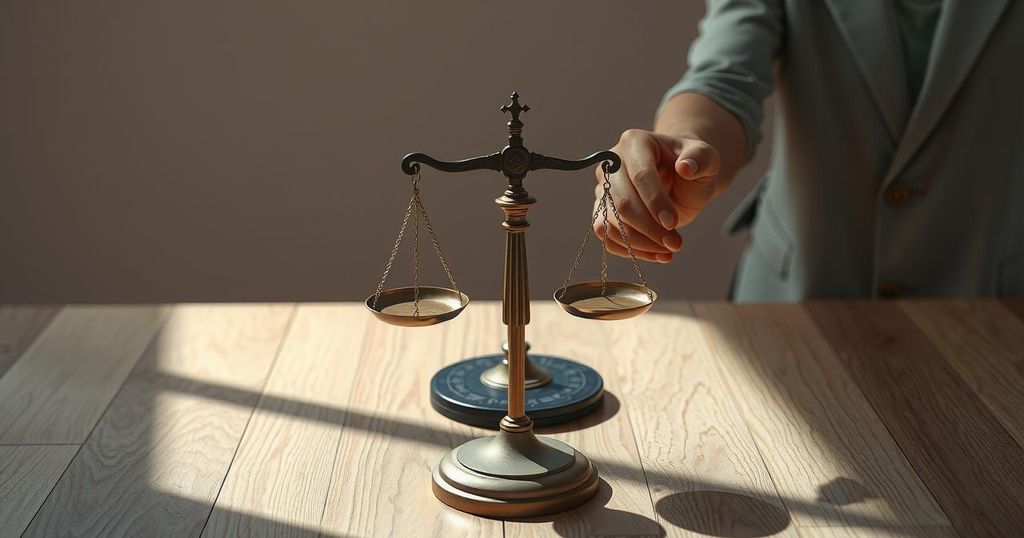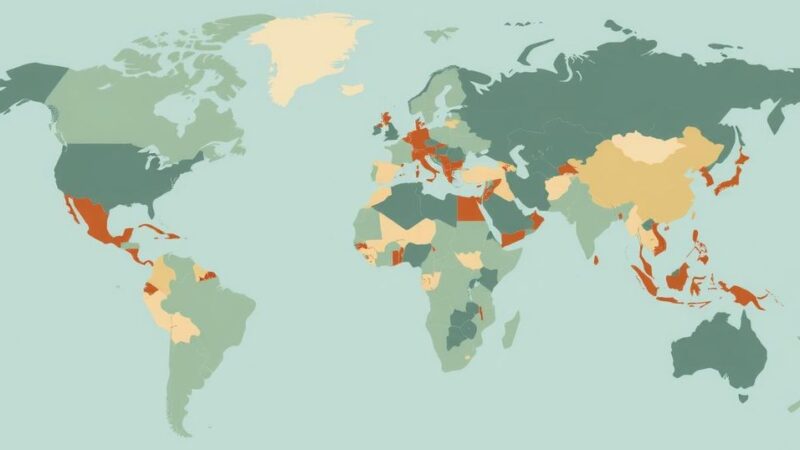The ICC prosecutor seeks arrest warrants for Taliban leaders Haibatullah Akhundzada and Abdul Hakim Haqqani for gender persecution against Afghan women and girls. The warrants reflect systematic human rights abuses associated with the Taliban’s rule. The move highlights international concerns over gender-based violence and the need for accountability, amidst existing pressures on the ICC regarding its investigations.
The International Criminal Court (ICC) prosecutor has submitted applications for arrest warrants against two high-ranking Taliban leaders, recognizing serious human rights abuses against Afghan women and girls. The requests, dated January 23, 2025, aim to charge Haibatullah Akhundzada, the Taliban’s supreme leader, and Abdul Hakim Haqqani, the chief justice, with the crime against humanity of gender persecution. The prosecutor supports these claims with evidence reflecting systematic violations of rights experienced by women, girls, and those not conforming to Taliban-imposed gender norms, including LGBT individuals.
According to the ICC prosecutor, reasonable grounds exist that Akhundzada and Haqqani contributed to the widespread persecution of women by imposing severe restrictions on their rights, including curtailing access to education, employment, and personal autonomy. Human Rights Watch has emphasized the significance of these warrants, emphasizing their potential to place the Taliban’s oppressive actions against women and marginalized groups back on the global stage for accountability.
The ICC has a historical context in Afghanistan, following an investigation authorized in March 2020, which faced delays partly due to previous Afghan government requests to defer proceedings. However, judges eventually determined that any national actions were inadequate, leading to a resumption of investigations in October 2022. A referral from six ICC member states in November 2024 spurred further investigations into the deteriorating human rights conditions, particularly for women and girls.
Human Rights Watch has documented extensive violations, revealing that the Taliban has issued over 100 decrees restricting the rights of women and girls, imposing bans on education and employment and violating their freedoms. The prosecutor’s announcements indicate intentions to pursue additional warrants against other senior Taliban figures, reflecting ongoing concerns regarding their grave human rights abuses and violence against various community members, including LGBT individuals.
Internationally, the ICC is facing pressures linked to its complex investigations, such as the recent issuance of arrest warrants against Israeli officials, which have incited threats of sanctions from U.S. lawmakers. Nonetheless, support for the ICC’s independent operation remains crucial, particularly following the designation of various countries expressing concerns regarding gender discrimination in Afghanistan.
Victims and advocacy groups continue to urge the ICC prosecutor to expand investigations to encompass alleged crimes committed by former Afghan security forces and U.S. personnel, as cries of double standards arise over the perceived focus solely on Taliban and ISKP crimes. Human Rights Watch emphasizes that accountability requires a comprehensive approach to address the full spectrum of international crimes committed in Afghanistan since 2003.
In summary, the ICC faces a pivotal moment as it seeks justice for persistent gender persecution under the Taliban regime, designed to dismantle foundational rights for women and girls. The court’s strategic efforts to secure warrants and broaden its investigations represent significant steps toward fostering greater accountability in the face of systemic oppression.
This article discusses the International Criminal Court’s requests for arrest warrants against Taliban leaders for gender persecution in Afghanistan. It highlights the ongoing human rights abuses against women and girls since the Taliban’s return to power. The ICC’s role, investigations, and historical efforts to address these violations are also explored, along with the international community’s response to the situation in Afghanistan. The narrative underscores the importance of accountability for human rights violations and the need for comprehensive investigations into all actors involved in such abuses.
The quest for accountability for gender persecution in Afghanistan has reached a critical juncture, with the ICC’s warrant applications spotlighting the need for justice against the Taliban’s human rights violations. There is a pressing call for broader investigations that include various perpetrators to establish comprehensive accountability. The international community must support the ICC’s independent operations to uphold justice and address the severe deterioration of women and marginalized individuals’ rights in Afghanistan.
Original Source: www.hrw.org






